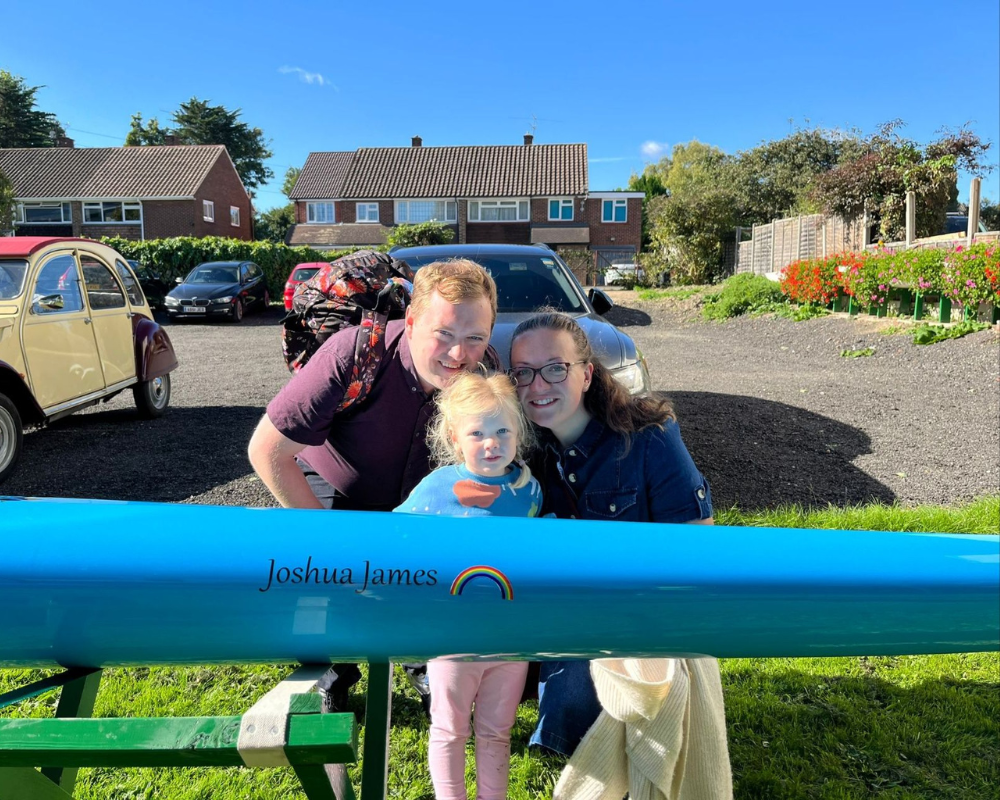“Do you have any other children?”
Questions from strangers
"Do you have any other children?"
I doubt I’m the only one that has experienced this and wondered how on earth to respond.
Picture the scene, I’m in the park with my daughter Abigail, who is 2 ½ years old (she’s now 3 ½ and counting, and this still happens often). She’s on the swing, having a fantastic time, and I end up having a bit of a chat with the other parent also with their child.
“How old is your daughter? Oh lovely, is she your 1st/only/eldest?” or perhaps “are you thinking about having another child?”, “it would be lovely to have a sibling for her I’m sure.”
Finding the right response
It’s amazing how unintentionally loaded some simple words can be. I’m unsure how to respond, because my son Joshua, Abigail’s younger brother, died when my wife was 41 weeks pregnant. This was just a few weeks prior and my whole world felt like it was in pieces.
Initially, my instinct was to just roll with it: “yeah she’s our 1st” and ignore the rest and politely change subject or “no siblings no”. I imagine this is a lot of people’s reactions too. Why go into it with some person I likely won’t ever see again? Why should Joan behind the checkout in Tesco know about my grief?

Normalising baby loss
However, my approach to this has changed a lot since those first couple of weeks. Now my response is a variation of the same theme, “she is our eldest, her younger brother died”. Sometimes, it’s simply stating he died, sometimes it’s “he died when my wife was 41 weeks pregnant”.
Others may or may not agree, but I’ve decided I don’t really care if talking about my son makes other people uncomfortable. Why can’t I talk about him just like I talk about my daughter? Why should I hide my son’s existence, or the horrendous journey my family have gone through? So I don’t. I’m honest. I want to normalise the conversation.
If someone’s spouse dies is that person expected to never mention them again? So why are people made to feel they can’t bring up their children who have died? I want to say his name, I want to keep his memory and what short life he had alive in some way.
Changing the conversation
Also, maybe the conversation needs to change more widely anyway. So often people are asked ‘so when are you having kids?’ (which seems to happen immediately after anyone has got married). That couple might be desperate for kids, or have been trying for years and it hasn’t happened due to fertility issues. Or, perhaps they’ve experienced miscarriage or stillbirth.
When someone is asked ‘so when are you going to have another one?’, maybe they have been trying and again have had problems conceiving, or experienced miscarriage or stillbirth.
One thing I now know from being part of this community, is just how common it is for women and couples to have experienced baby loss.
So many people in our lives have told us they too had a miscarriage or stillbirth, and we had no idea. So perhaps by normalising the fact this loss happens, it will make people think a bit more about how loaded these questions can be. They may then be more sensitive to the fact that there is far more to people’s story than what we might see when we walk past them in the street, speak to them in our office communal area or even at friend/family events.
